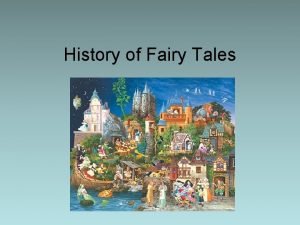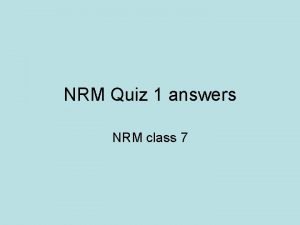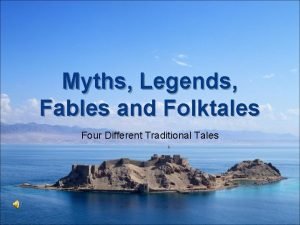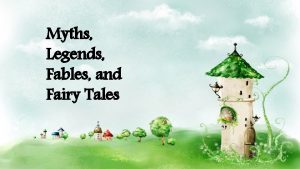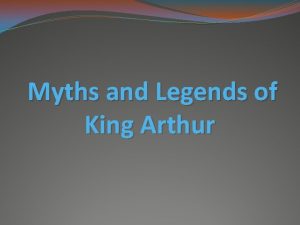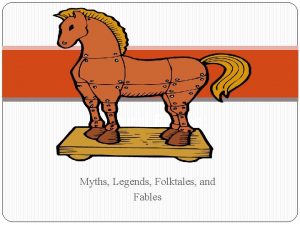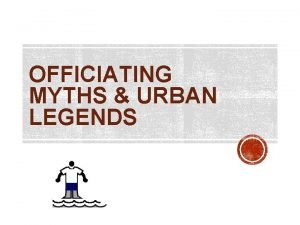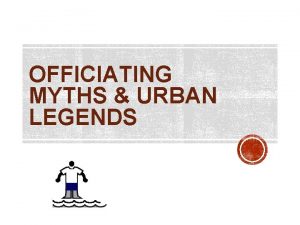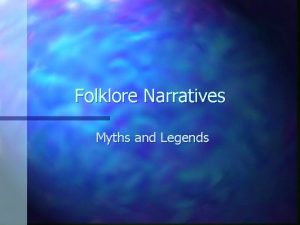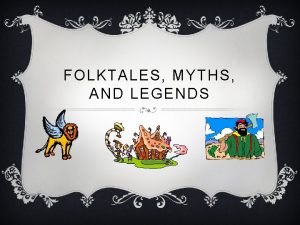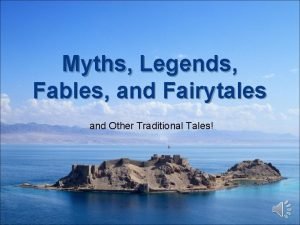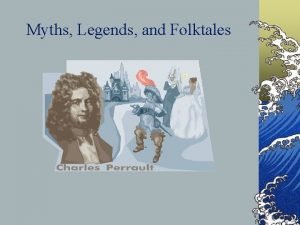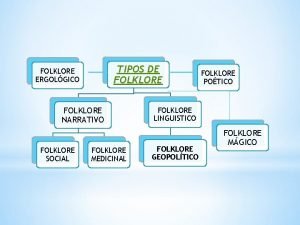FAIRYTALES MYTHS AND LEGENDS Folklore and Traditional Literature









- Slides: 9

FAIRYTALES, MYTHS, AND LEGENDS

Folklore and Traditional Literature Folklore consists of a people group (or “folk”) and all of its accumulated facts (“lore”) including: traditional customs, beliefs, knowledge, values, and attitudes of the ordinary people. Folk + Lore = Folklore

A folk's lore is communicated by word of mouth until it is transcribed (written down); this is called “oral tradition. ” Before people groups had written languages, oral tradition was the only means of preserving the history of a people and its culture.

TRADITIONAL LITERATURE Fairytales, Myths, and Legends are only one part (the literary part) of a folk's lore

values legends Beliefs myths Facts Folklore Customs Fairytales

The science of folklore was born when collectors ("folklorists") began collect-ing items to preserve the lore and his-tory of various people groups. The birth of this science began in the early 19 th century and is most often attributed to the Brothers Grimm, known best for their collection of what are now well-known fairy tales: Red Riding Hood, Snow. White, Hansel & Gretel, Rapunzel, etc.

WHAT IS A LEGEND? A legend is a story often believed to be true and in which the characters are usually considered historical by some. Examples include Robin Hood, King Arthur, and Pecos Bill.

Voice. Thread Questions Do today’s young people tell stories? Do you think these people are telling stories or just goofing around & partying? Do children still enjoy hearing stories? Is this story telling? Why or why not? How does it differ from face to face story telling?

What about myths…fairytales…legends… As a culture, do we still believe them? Tell them? Pass them on to other generations? Should we? Why do we or don’t we?
